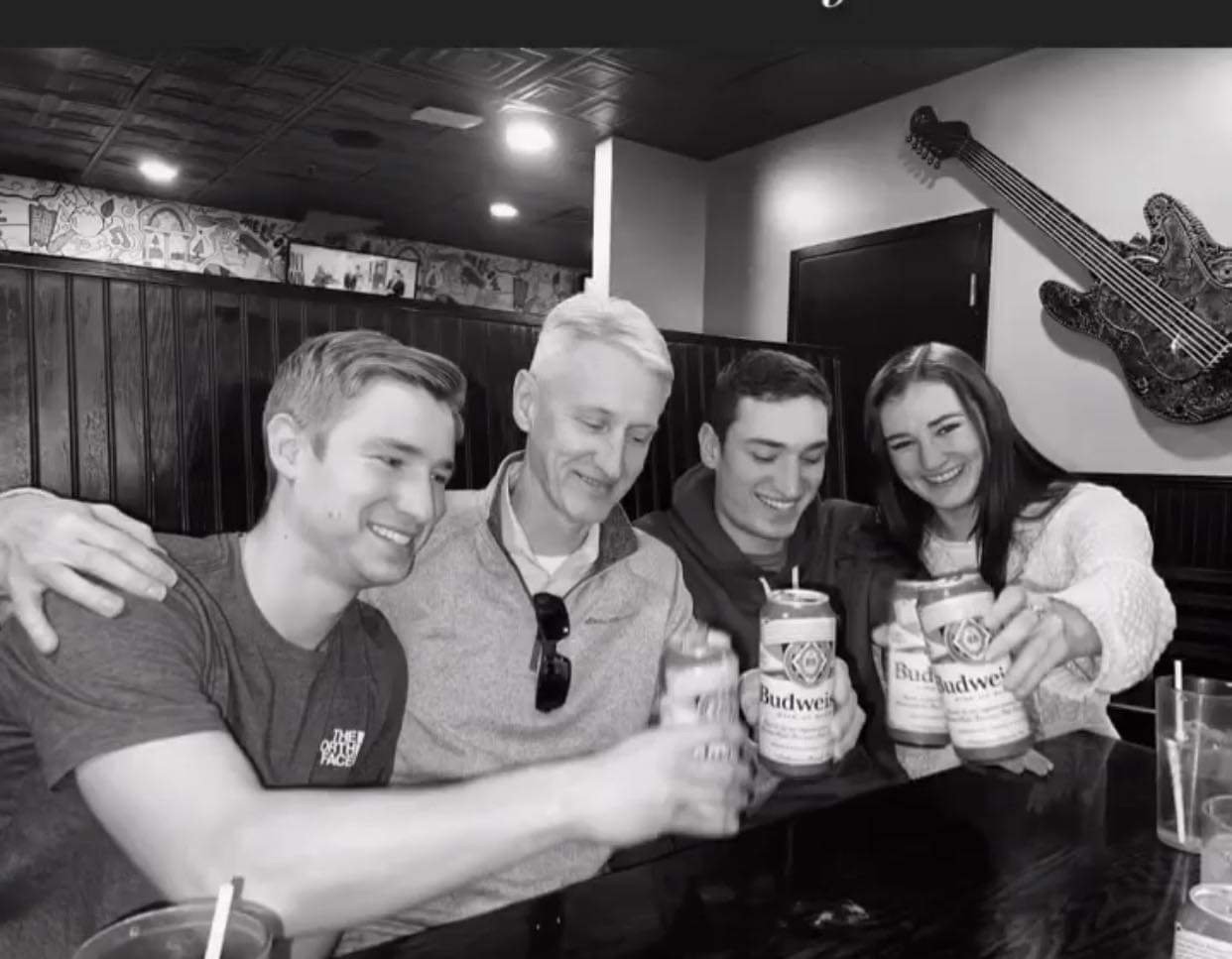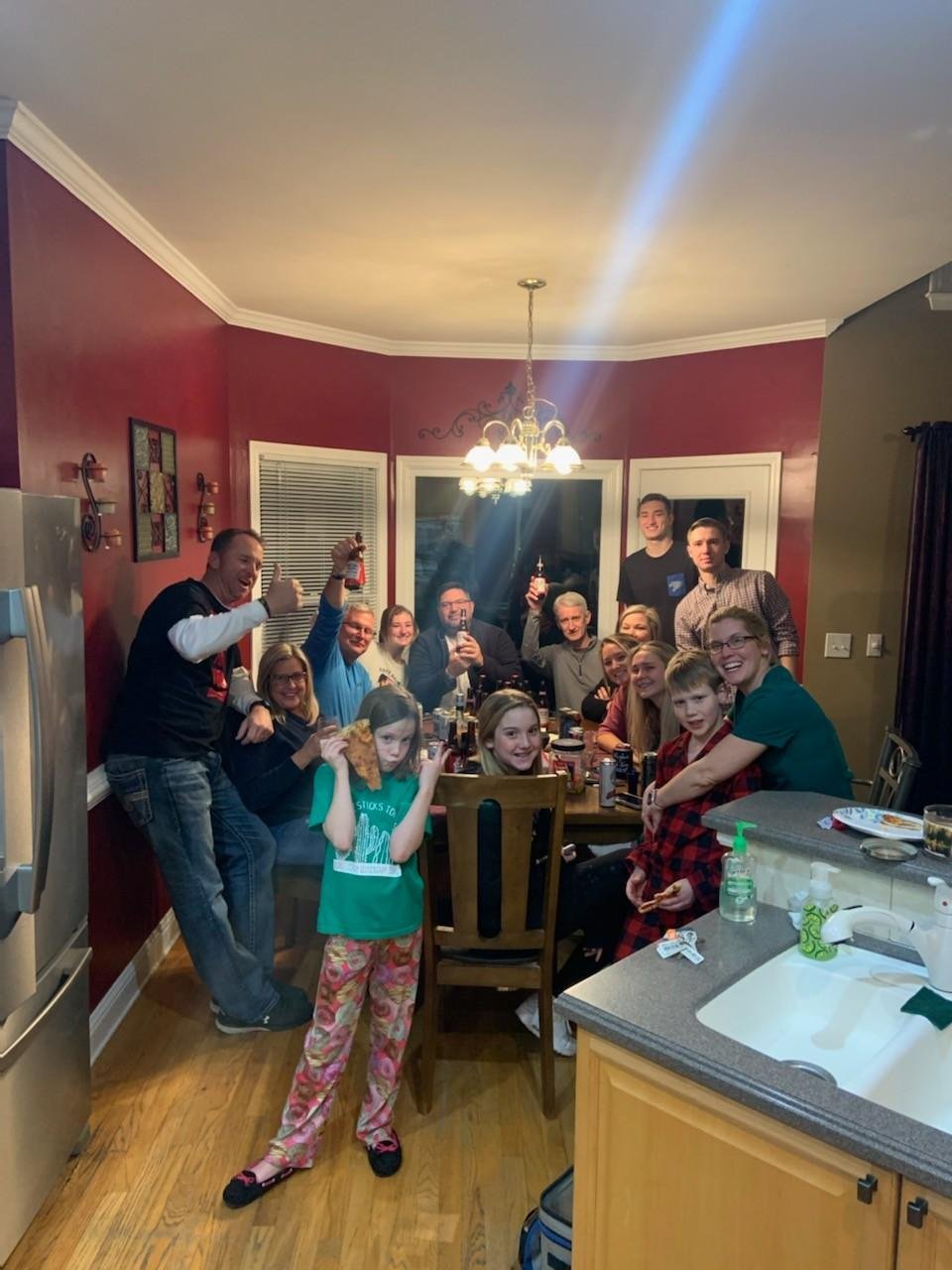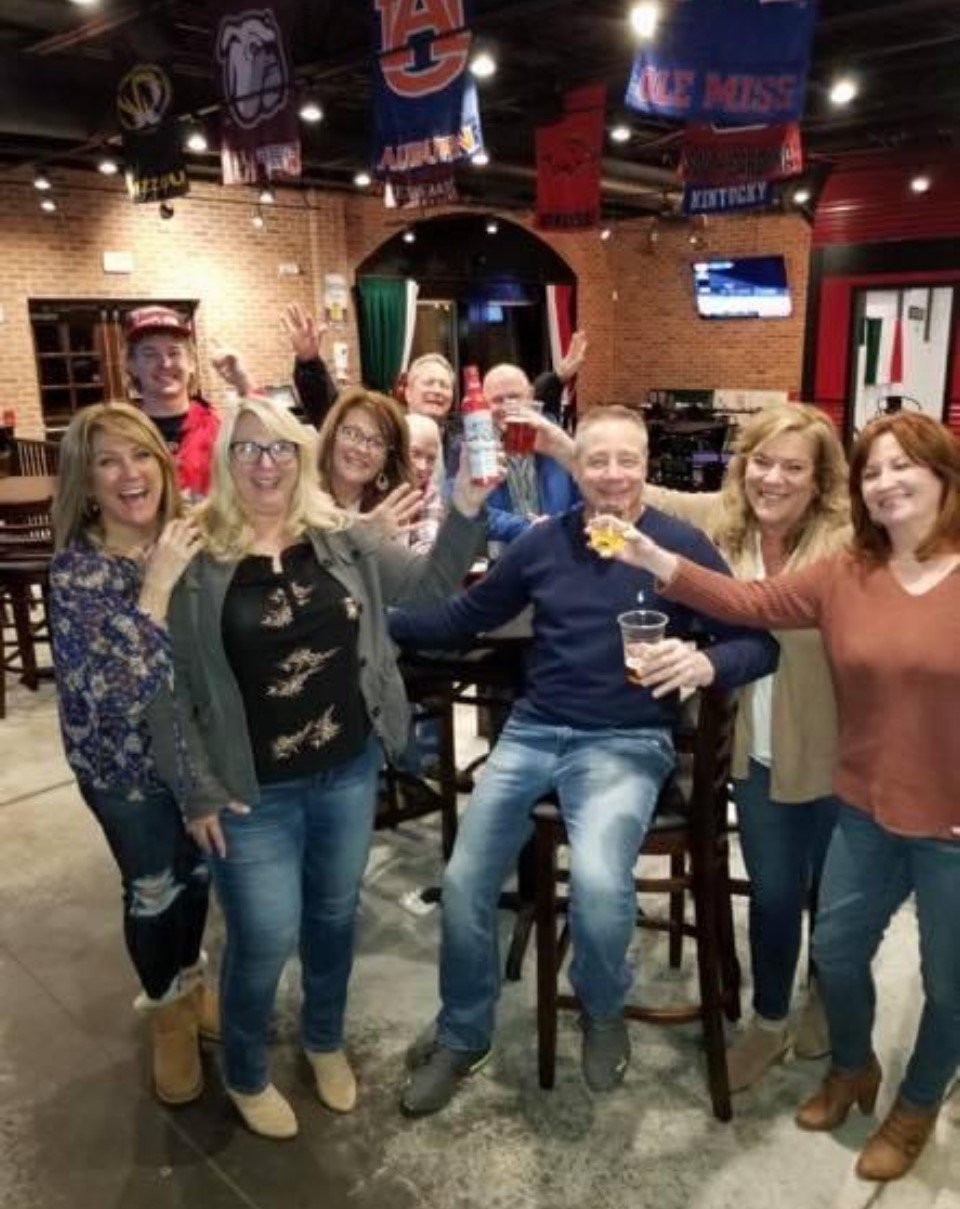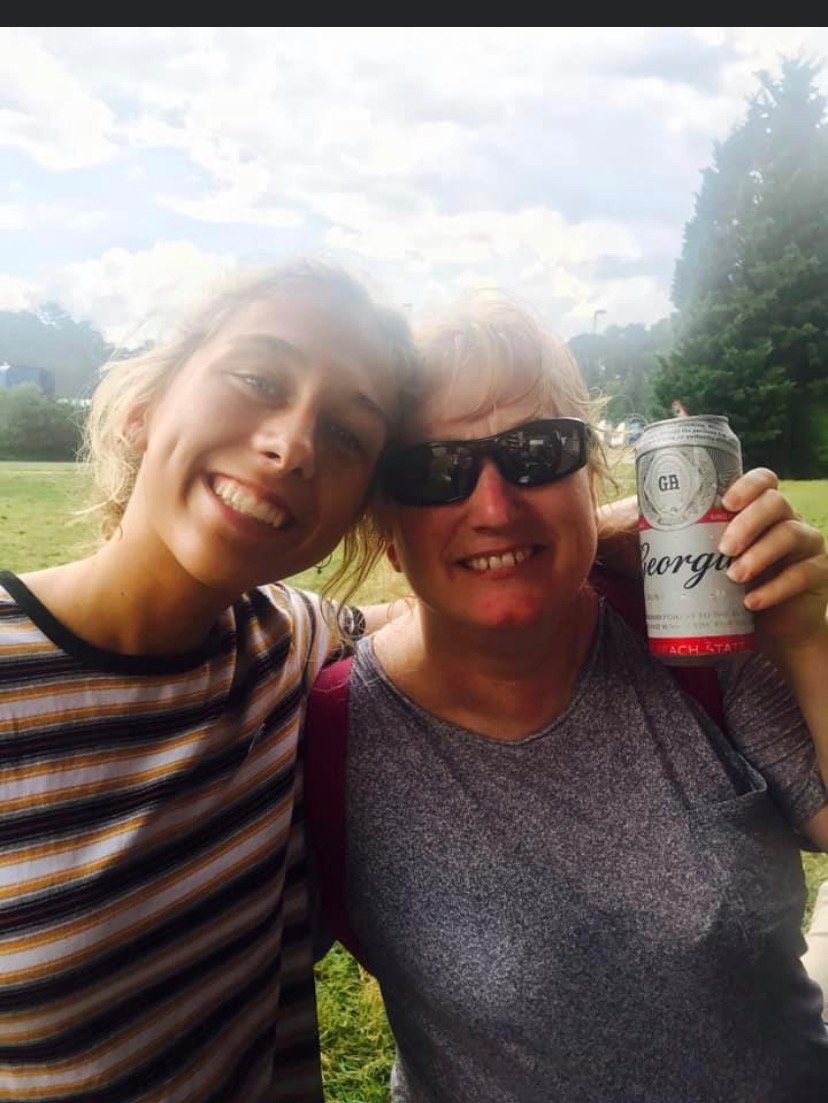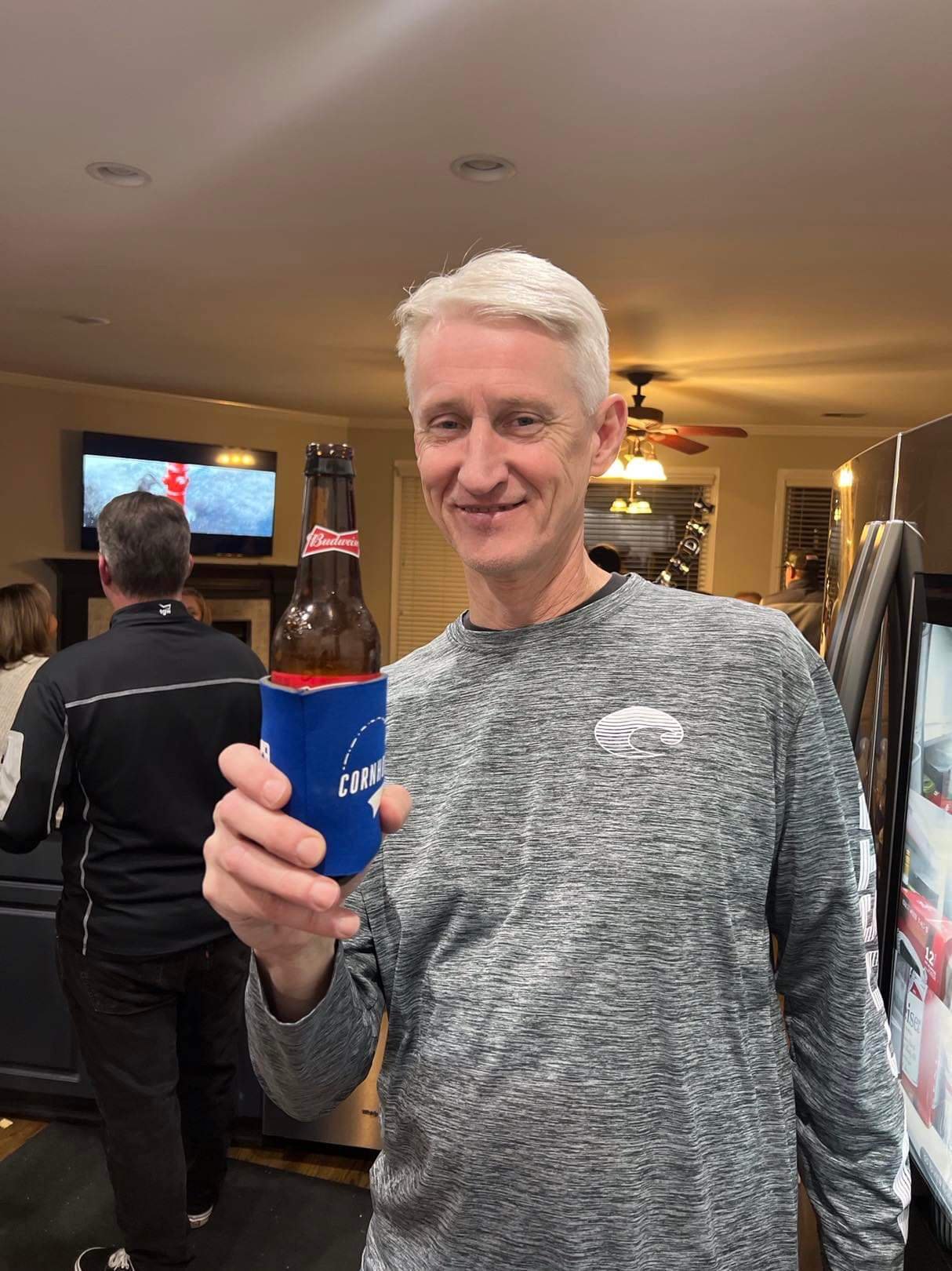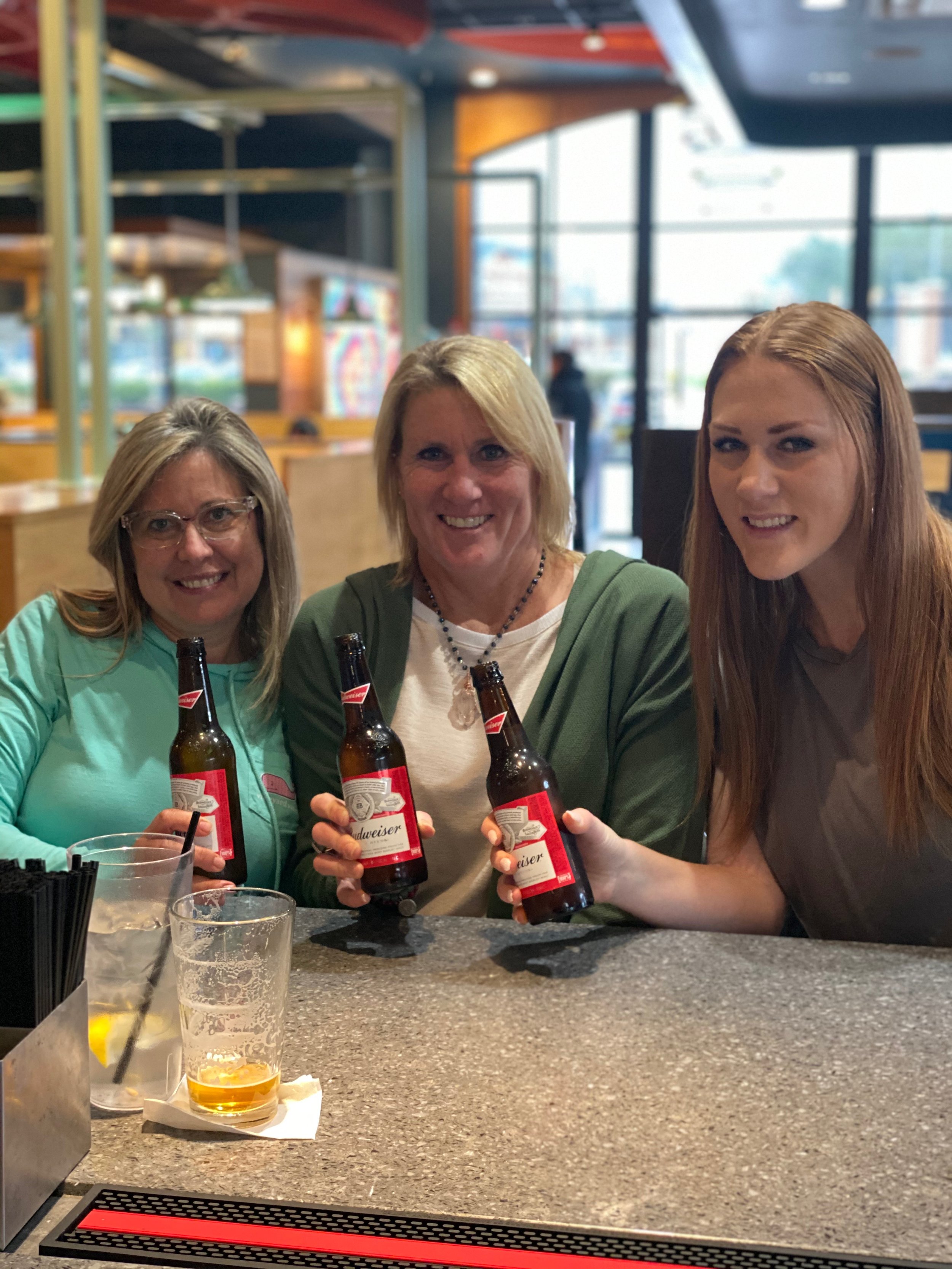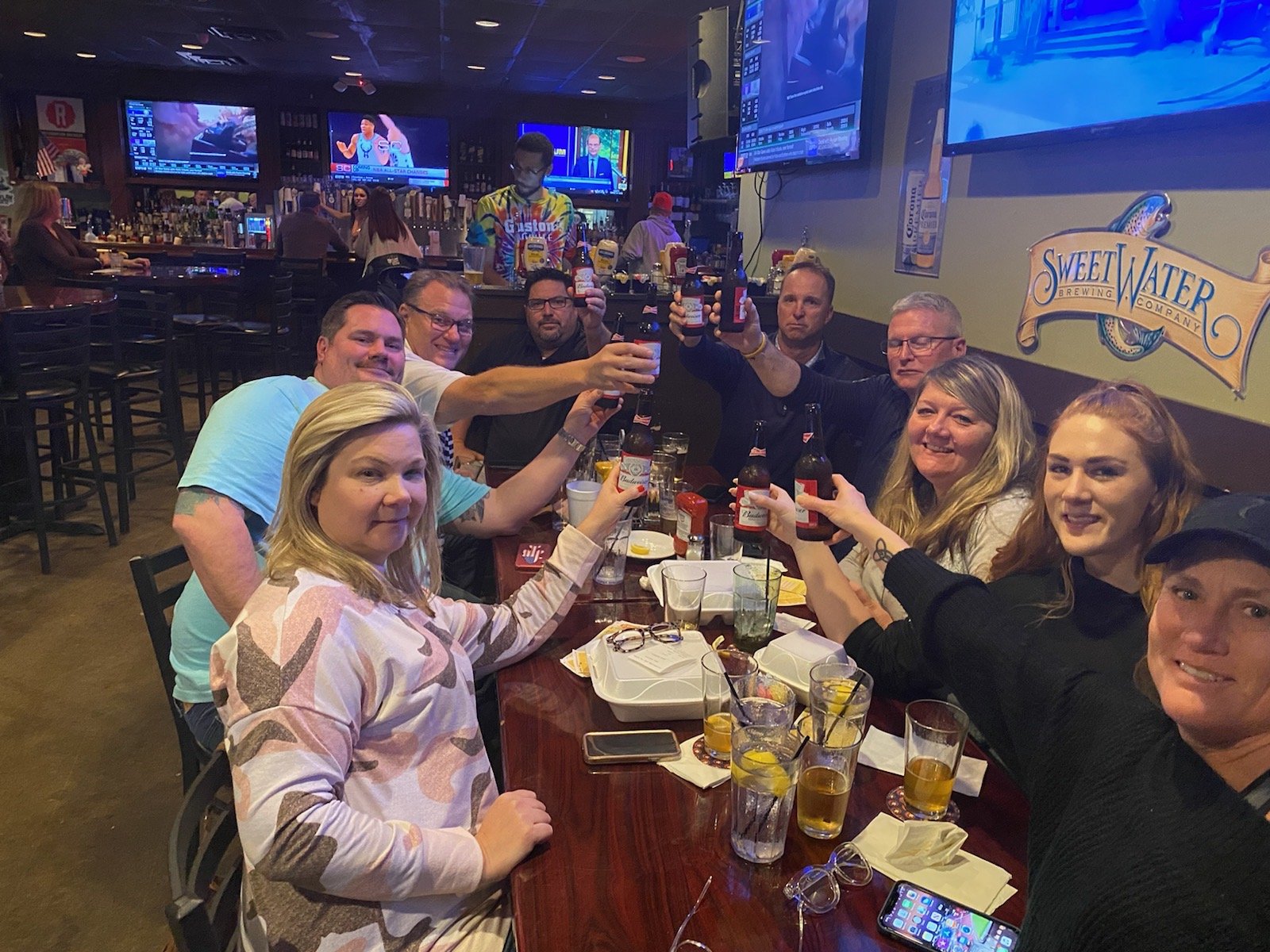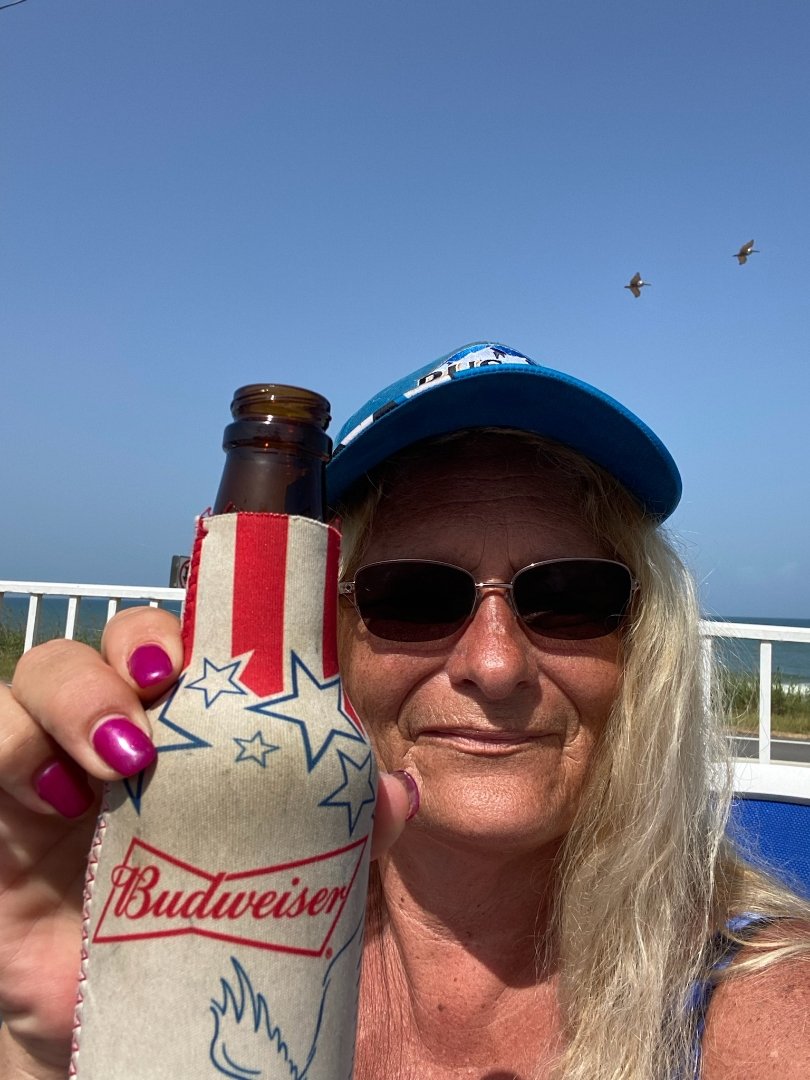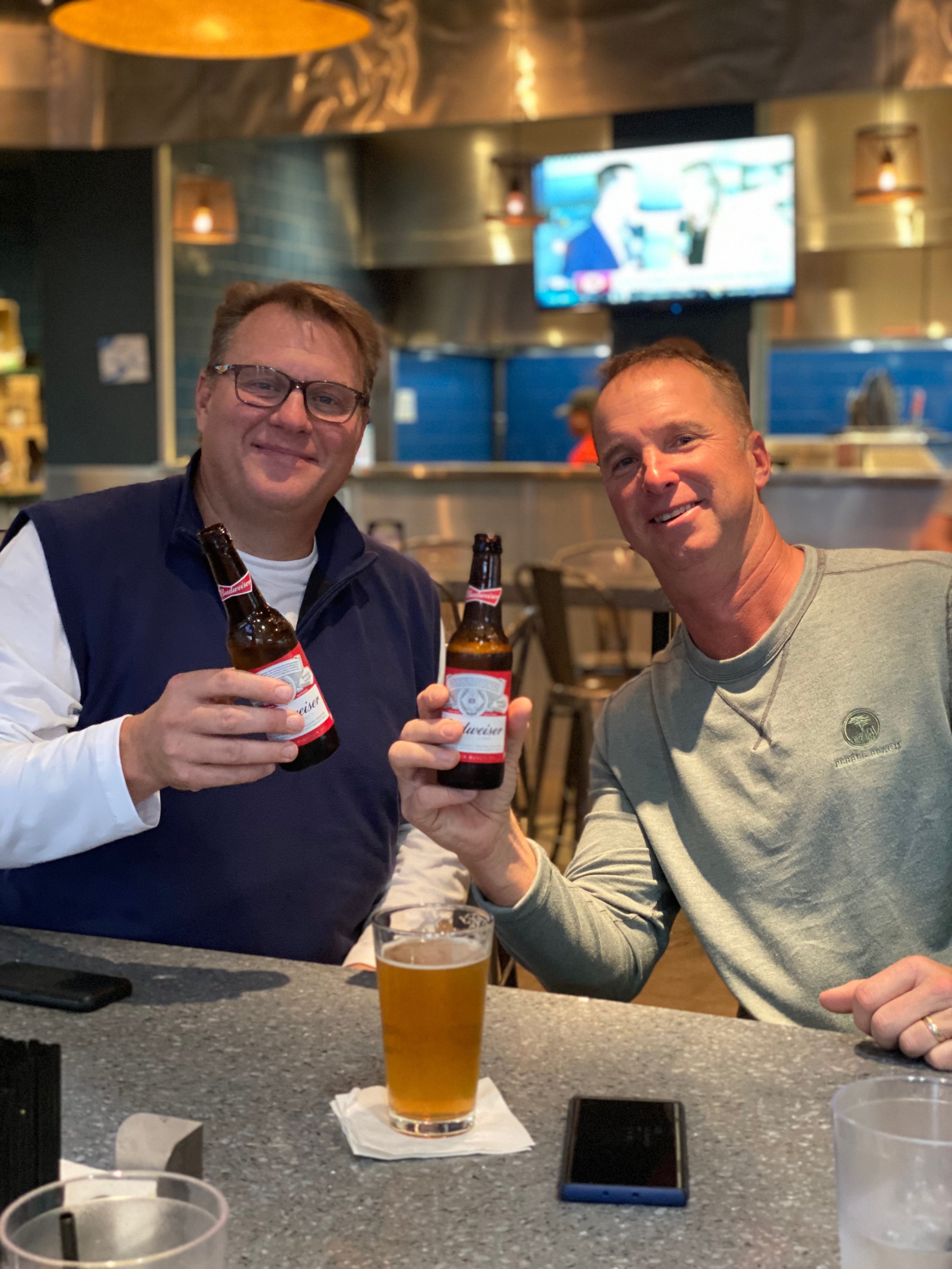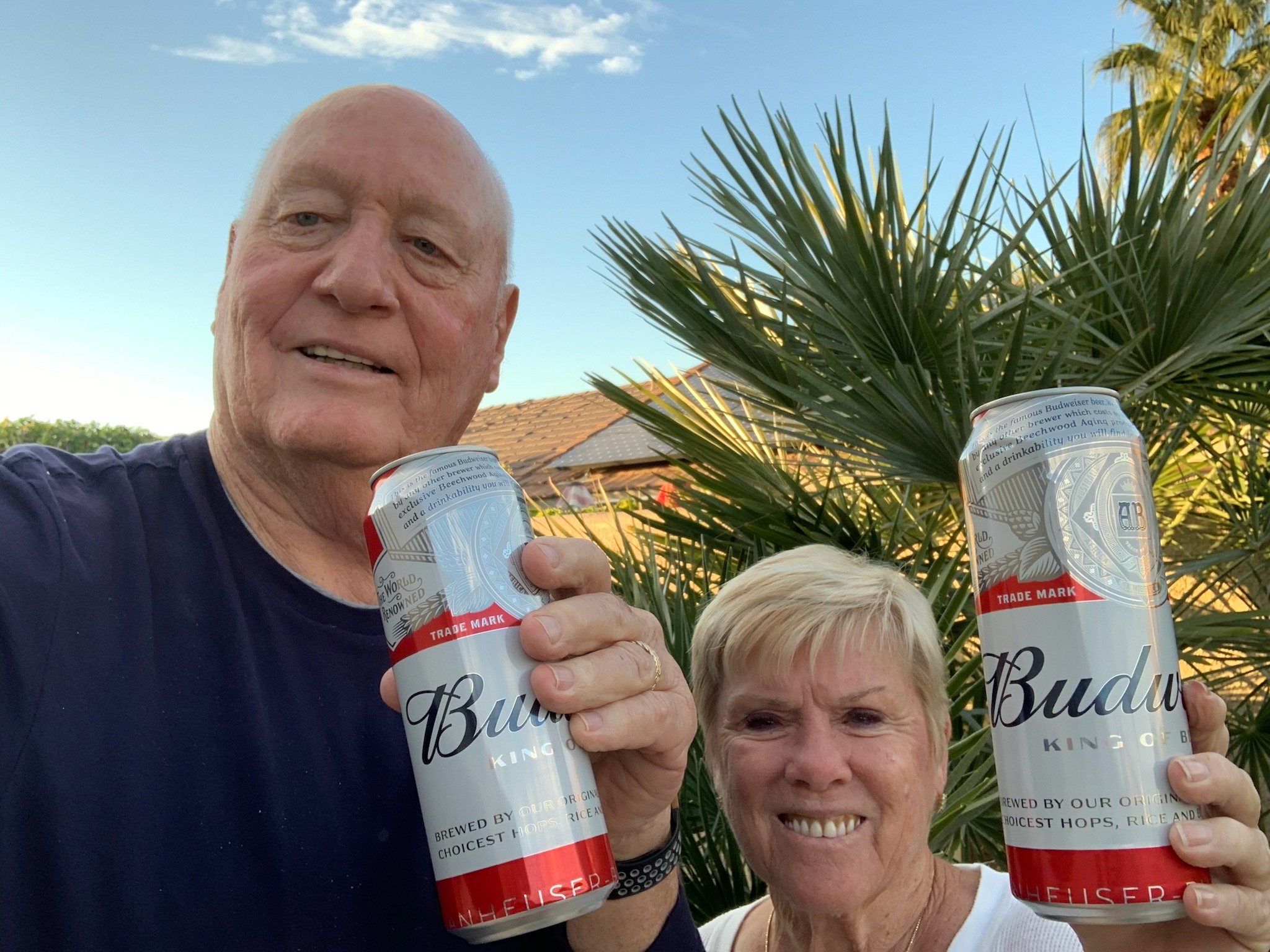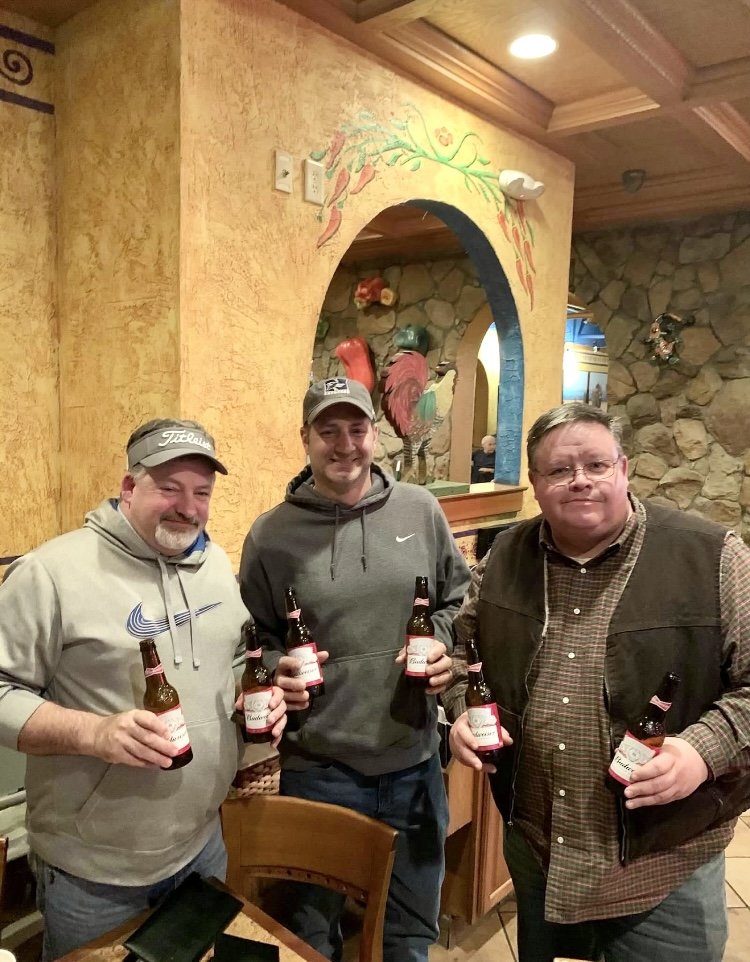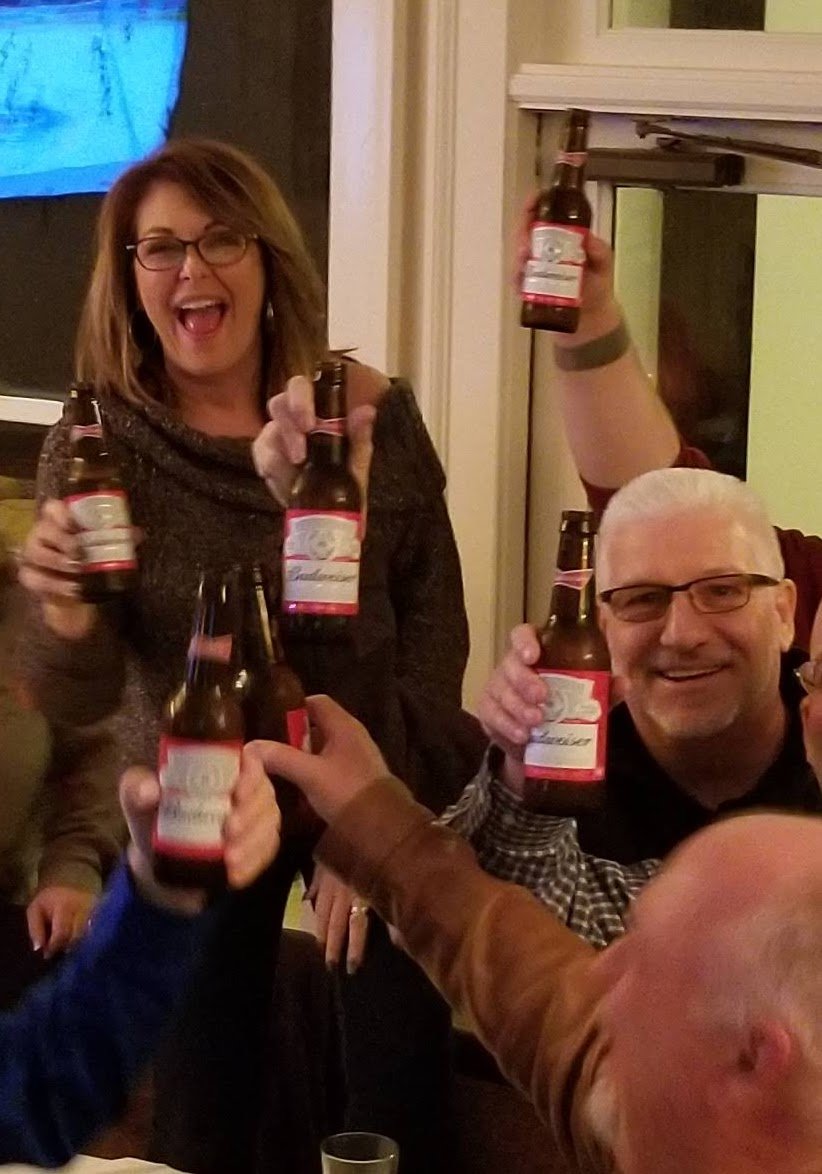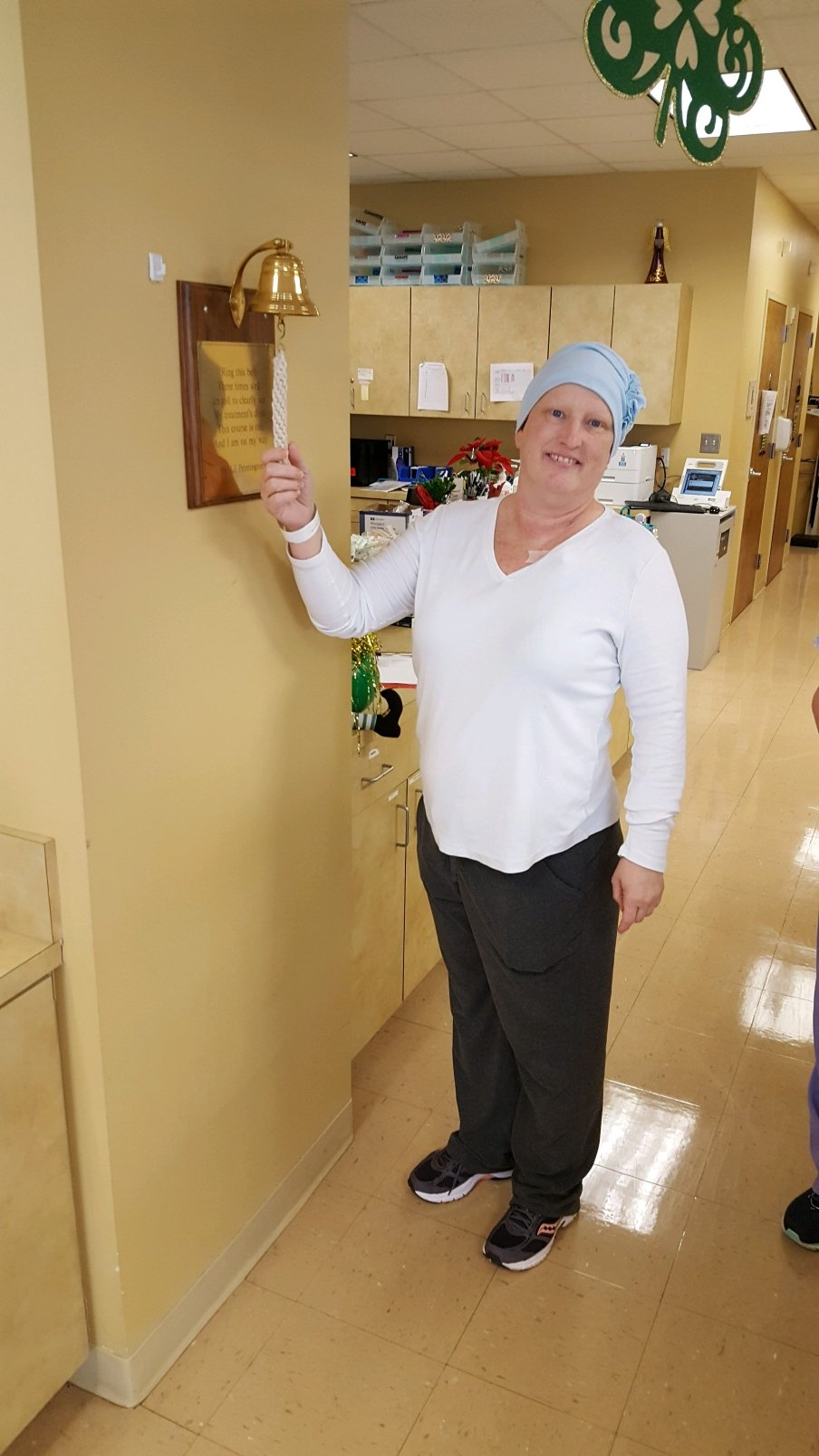This one’s for you, Laura Lee
Shorter Version Originally Published in the Atlanta Journal-Constitution
Just as a driver’s license comes at age 16, and the right to legally purchase alcohol comes at 21, I’ve always known mammograms come at age 40. Less exciting than a car or cocktail, but a rite of passage all the same. Maybe all women know mammograms are recommended at 40 (for some, even younger), but I’ve been acutely aware because my grandmother survived breast cancer twice and my friend, Laura Lee Cantrell, lost her life to breast cancer two and a half years ago.
When I first met Laura Lee in 2006, everyone referred to her as the baby whisperer. I found that ironic, considering she was the loudest person in every room, never shying from the “f” word, pronounced with a twang, courtesy of her Big Stone Gap, VA roots. Laura Lee was a straightforward, fiery redhead, a force to be reckoned with, wielding a Budweiser in hand and a sarcastic comment on the tip of her tongue. Baby whisperer they said, but I didn’t see it. I didn’t find her particularly warm or comforting, so I silently, politely disagreed.
Five years after I met Laura Lee I had my first baby, and my perception of her began to shift. She seemed to like me more with a baby, and she liked my baby more than she liked me. She reached out for him expectantly when I walked through the door. When he cried, she shooed me and soothed him. When I had questions about his care, she knew the answers. She wasn’t a nurse or a nanny, but she had three children of her own, and I quickly came to see her as an expert. Her knowledge was vast, as was her love for children. So, she IS the baby whisperer, I acquiesced.
Over the next decade or so, like ivy on a trellis, Laura Lee grew on me. I found it impossible not to succumb to her authentic mix of humor, heart, and hijinks. Her blunt and wild was a stark contrast to my conservative and self-conscious. I’d be lying if I said I didn’t admire, maybe even envy, her brazen, uninhibited nature. And I wasn’t alone, as was evident by her wide circles of friends. Laura Lee had a gravitational pull, whether it be her flair for creative cussing, or the way she coddled babies, something dynamic drew us into her orbit.
In 2018, Laura Lee found a painful, pea-sized lump in her right breast, which led her to get a mammogram. Within a couple weeks, she was diagnosed with 100 percent triple-negative breast cancer. This type of cancer is not hereditary, grows quickly, and is likely to grow back. Laura Lee immediately began chemotherapy and radiation, followed by a double mastectomy.
The news of Laura Lee’s diagnosis seemed impossible. Cancer can victimize anyone, meek or bold, but it felt shocking that someone so tough could befall such a terrifying diagnosis. Though she probably felt a slew of emotions, she, as always, kept them close to her chest and trudged forward with a take-care-of-business attitude. Unwilling to watch her hair fall out slowly, she asked her neighbor to come over and shave her head. She didn’t bother with wigs, a ball cap sufficed. And she didn’t shy away from the camera, but sent smiling selfies to friends, her bald head gleaming.
I recall her telling me about chemo. She’d describe how sick some of the patients were, suffering from nausea and an array of other symptoms. Laura Lee said she felt fine physically but was sick for them. Pray for them, she’d tell me. I pictured her in the clinic, soothing the other patients, just as she’d soothed babies over the years. Though I wasn’t there to witness, it sounds on point: the baby whisperer as the patient whisperer.
By the time her youngest child, daughter Lexie, graduated high school in 2019, Laura Lee’s hair was growing back, and she was feeling well. Her treatment was over, other than a daily maintenance drug.
Unfortunately, Laura Lee’s health took a turn that November. A persistent cough led her to the doctor where they found spots on her lungs. Over the next month, many tests and scans were done, and Laura Lee learned her cancer had returned. She didn’t want to mar the holidays with fuss or worry, so she and her husband John kept the news to themselves for weeks. Laura Lee enjoyed Christmas with her children and on January 2, 2020, she told them, as well as close family and friends, that the cancer was back.
She was never overly emotional when she discussed her cancer, rather matter of fact, but tears would fill her eyes when she watched loved ones cry. I’m sad because you’re sad, she’d say.
Laura Lee struggled a lot over the following weeks. Doctors found the cancer had spread throughout her body and she was admitted into the hospital on January 21. Her friends sent her pictures of themselves, drinking a Budweiser in her honor, hoping to make her smile. This Bud’s for you, Laura Lee, they wrote. My husband and I even sent her a photo of our little boys with the beers, as I knew that would make her laugh. So sweet, she replied, her final text to me.
She struggled to breathe and was in and out of a sedated sleep those last couple days. Conversations were minimal because her oxygen was low. Though she’d been asleep most of the day on January 30, when Laura Lee’s mother walked into her hospital room, Laura Lee opened her eyes, extended her arms, and hugged her mom one last time. Laura Lee, only 53 years old, passed away shortly after.
Laura Lee had a traditional Catholic service. Friends stood at the altar afterward and shared their favorite Laura Lee stories. Her next-door neighbor Sarah said Laura Lee was an everyday presence in her children’s lives. Laura Lee is the one who defied Sarah’s whole food approach and introduced the kids to Twinkies. It was Laura Lee who Sarah went to when her babies wouldn’t stop crying. Give me that baby, give me a bottle, and go away, Laura Lee would demand, and within minutes, those babies were fast asleep on her chest. It was Laura Lee who ran to Sarah’s house when she went into labor in the middle of the night, who called in late to work the next day so she could stay with Sarah’s older children.
When Candice, another neighbor of Laura Lee’s, was panicked over her sick dog, she didn’t consider calling Laura Lee, who notoriously hated dogs. Candice tried two other neighbors, and both were unavailable. One of them, however, called Laura Lee to tell her about the dog. Laura Lee was at Candice’s door minutes later. The dog was gravely ill. The two women lifted it and placed it into Candice’s car. While doing so, the dog went to the bathroom on Laura Lee and all over the kitchen floor. Candice apologized as she handed towels to Laura Lee. Laura Lee told her not to worry, just get that dog to the vet, she said. Later that evening, after her dog was euthanized, Candice, whose family was out of town, returned to her quiet home. When she opened the door, she saw Laura Lee. The mess had been cleaned, the towels had been washed, and there sat Laura Lee with fresh baked brownies and two beers.
Much as she loved to snuggle babies, Laura Lee was not a hugger. I am, so I always made note to refrain from embracing when I greeted her. She did make an exception one day and I’ll never forget it. In 2017, months after my oldest son passed away, Laura Lee made a beeline for me, enveloping me in a brief, but tight hug. I was hugged often, but only hers caught me off guard. The meaning of it surpassed words.
When I was at my annual appointment this July, just weeks after my 40th birthday, my gynecologist said it was time to schedule a mammogram. I nodded affirmatively. She begged me to not procrastinate, as many women do. I said she need not worry.
I did have some nerves the morning of my appointment. I thought about how uncomfortable I’d feel standing topless in front of a stranger. I wondered how painful the mammogram would be and how long I’d wait for results. I filled out paperwork and tapped my foot to the Taylor Swift song playing in the waiting room. As I attempted to drown out my jitters, the loud, foul-mouthed voice of Laura Lee came to mind. I pictured her, sipping a Budweiser, telling me to get this shit done. A nurse with a clipboard stepped out and called my name.
As I headed back for my very first mammogram, I smiled and thought this one’s for you, baby whisperer.
October is Breast Cancer Awareness month. To learn more visit www.komen.org
In honor of Laura Lee’s affinity for cussing, please also visit www.letsfcancer.com
